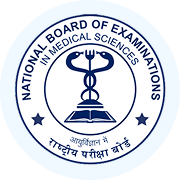
|
INFINITY COURSE
Physiology for NEET PG515 students learning this week · Last updated on Oct 22, 2025 |
Physiology Study Material
Trending Courses for NEET PG
Physiology for NEET PG Exam Pattern 2025-2026
Physiology Exam Pattern for NEET PG
The National Eligibility cum Entrance Test for Postgraduate (NEET PG) is a crucial examination for aspiring medical graduates in India. Understanding the exam pattern is essential for effective preparation. Here’s a detailed breakdown of the Physiology exam pattern for NEET PG.
1. Exam Structure
- Type of Exam: The NEET PG is a computer-based test.
- Duration: The total time allotted for the exam is 3 hours 30 minutes.
- Total Questions: The examination consists of 200 multiple-choice questions (MCQs).
2. Distribution of Questions
- Subject-wise Distribution:
- Physiology: Approximately 10-15 questions.
- Other subjects such as Anatomy, Biochemistry, and various clinical subjects are also included.
- Types of Questions: MCQs may include single correct answer questions and multiple response questions.
3. Scoring System
- Scoring: Each correct answer carries +4 marks.
- Negative Marking: For each incorrect answer, -1 mark is deducted.
- Unattempted Questions: No marks are given or deducted for unattempted questions.
4. Syllabus Overview
- Key Topics in Physiology:
- Cell Physiology
- Neurophysiology
- Cardiovascular Physiology
- Respiratory Physiology
- Renal Physiology
- Endocrine Physiology
- Reproductive Physiology
5. Preparation Tips
- Understand Key Concepts: Focus on core principles and mechanisms.
- Practice MCQs: Regularly solve past year papers and sample questions to get accustomed to the exam pattern.
- Time Management: Practice completing questions within the allotted time.
- Revision: Regularly revise important topics to retain information for the exam.
By familiarizing yourself with the exam pattern, you can strategize your preparation effectively and enhance your chances of success in the NEET PG examination.
Physiology Syllabus 2025-2026 PDF Download
NEET PG Physiology Syllabus Overview
The NEET PG Physiology syllabus is a comprehensive guide that covers essential topics crucial for understanding human physiology. This article will detail the various components of the syllabus, ensuring that you are well-prepared for the examination.
1. Homeostasis of Body Fluids
- Definition and significance of homeostasis
- Body fluid compartments and their distribution
- Regulation of body fluids
2. Cell Physiology and Membrane Potential
- Cell structure and function
- Membrane potential and action potential
- Transport mechanisms (diffusion, osmosis, active transport)
3. Physiology of Nerve
- Neurotransmission and synaptic transmission
- Types of nerve fibers
- Nerve conduction velocity
4. Physiology of Muscle
- Types of muscle tissue (skeletal, cardiac, smooth)
- Muscle contraction mechanisms
- Muscle metabolism
5. Electrophysiology of Heart
- Action potentials in cardiac muscle
- Cardiac conduction system
- Electrocardiogram (ECG) interpretation
6. Cardiac Output and Regulation
- Definition and determinants of cardiac output
- Starling's law of the heart
- Factors affecting cardiac output
7. Blood Pressure and Regulation
- Measurement and significance of blood pressure
- Regulatory mechanisms (neural and hormonal)
- Pathophysiology of hypertension
8. Vascular System and Regional Circulation
- Structure and function of blood vessels
- Regional blood flow and its regulation
- Microcirculation and capillary dynamics
9. Mechanics of Respiration with Lung Volumes and Capacities
- Respiratory mechanics and lung volumes
- Pulmonary ventilation
- Factors affecting lung capacities
10. Gaseous Exchange
- Diffusion of gases in the lungs
- Factors influencing gaseous exchange
- Oxygen and carbon dioxide transport
11. Regulation of Respiration and Applied Physiology
- Central and peripheral chemoreceptors
- Respiratory control centers
- Applied aspects in clinical scenarios
12. Sensory Physiology
- Structure and function of sensory receptors
- Mechanisms of sensory transduction
- Pathways for sensory information processing
13. Motor Physiology
- Reflex arcs and motor pathways
- Muscle tone and motor control
- Motor unit recruitment
14. Higher Functions and Special Senses
- Cognitive functions and their physiology
- Physiology of vision, hearing, taste, and smell
- Integration of sensory information
15. Renal Physiology
- Kidney structure and function
- Formation of urine and regulation of electrolytes
- Acid-base balance in renal physiology
16. Gastrointestinal Physiology
- Digestive processes and enzyme functions
- Absorption of nutrients
- Regulation of gastrointestinal motility
17. Endocrine Physiology
- Hormonal regulation and feedback mechanisms
- Major endocrine glands and their hormones
- Pathophysiology of endocrine disorders
18. Male and Female Reproductive Physiology
- Male reproductive system and spermatogenesis
- Female reproductive system and oogenesis
- Hormonal regulation of reproduction
19. Exercise Physiology
- Physiological responses to exercise
- Energy systems during physical activity
- Adaptations to training
20. Acid-Base Balance
- Concept of pH and buffers
- Physiological mechanisms of acid-base regulation
- Clinical implications of acid-base disorders
This comprehensive overview of the NEET PG Physiology syllabus provides a clear framework for your studies. Each topic is essential for mastering the complexities of human physiology, which is crucial for success in the NEET PG examination.
This course is helpful for the following exams: NEET PG
How to Prepare Physiology for NEET PG?
How to Prepare Physiology for NEET PG?
Preparing for the NEET PG examination can be challenging, especially when it comes to complex subjects like Physiology. Here are some effective strategies to help you excel in this crucial subject as part of your NEET PG preparation.
1. Understand the Syllabus
Before diving into your studies, it's essential to familiarize yourself with the NEET PG Physiology syllabus. This will help you identify the key topics and allocate your time and resources effectively.
2. Create a Study Schedule
A well-structured study schedule is vital for effective preparation. Allocate specific time slots for Physiology and stick to your plan. Include breaks to avoid burnout.
3. Utilize Quality Study Material
Invest in high-quality study materials. The EduRev course offers comprehensive resources tailored specifically for NEET PG aspirants. These materials cover all essential topics and are designed to enhance your understanding.
4. Focus on Understanding Concepts
Instead of rote memorization, focus on understanding the underlying concepts of Physiology. This will not only help you remember the information better but will also allow you to apply it in clinical scenarios.
5. Practice MCQs Regularly
Regular practice of MCQs is crucial for NEET PG preparation. It helps in familiarizing yourself with the exam format and identifying your weak areas. The EduRev course includes a plethora of MCQs to test your knowledge and enhance your problem-solving skills.
6. Use Visual Aids
Utilize diagrams, flowcharts, and tables to visualize complex processes in Physiology. This approach can make it easier to retain information and understand relationships between different physiological systems.
7. Join Study Groups
Collaborating with peers can provide additional insights and enhance your learning experience. Study groups allow you to discuss difficult topics and share resources, making your preparation more effective.
8. Revise Regularly
Revision is key to retaining information. Schedule regular revision sessions to revisit the topics you have studied. The EduRev course is structured to facilitate efficient revision, ensuring you grasp all critical concepts.
9. Take Mock Tests
Simulate the exam environment by taking regular mock tests. This practice will not only help you manage your time effectively during the actual exam but also boost your confidence.
10. Stay Updated
Stay abreast of the latest advancements and changes in the field of Physiology. This knowledge can be beneficial in answering application-based questions in the NEET PG exam.
In conclusion, preparing for Physiology as part of your NEET PG journey requires dedication, strategic planning, and the use of quality resources like the EduRev course. By following these tips, you can strengthen your understanding and improve your chances of success in the NEET PG examination.
Importance of Physiology for NEET PG
Importance of Physiology Course for NEET PG
The NEET PG (National Eligibility cum Entrance Test for Postgraduate) is a crucial examination for medical graduates aspiring to pursue postgraduate courses in India. To excel in this competitive environment, a solid understanding of physiology is essential. Here’s why enrolling in a physiology course, such as the one offered by EduRev, is vital for NEET PG aspirants.
1. Foundation of Medical Knowledge
Physiology serves as the cornerstone of medical science. Understanding how the body functions is crucial for diagnosing and treating diseases. A physiology course helps students:
- Grasp fundamental concepts of bodily functions.
- Link physiological mechanisms to clinical practices.
2. Integration with Other Subjects
Physiology is interconnected with various subjects like biochemistry, pharmacology, and pathology. A comprehensive physiology course enables students to:
- Understand the interrelationships between these disciplines.
- Apply physiological concepts to clinical scenarios, improving overall retention.
3. Enhancing Problem-Solving Skills
The NEET PG exam often involves clinical vignettes and problem-solving questions. A well-structured physiology course:
- Develops critical thinking and analytical skills.
- Prepares students to tackle complex medical scenarios effectively.
4. Updates on Recent Advances
The field of physiology is constantly evolving with new research and discoveries. A dedicated physiology course keeps students:
- Informed about the latest findings and their clinical implications.
- Equipped to integrate new knowledge into their medical practice.
5. Simplified Learning Resources
EduRev's physiology course is designed to simplify complex topics through:
- Interactive learning materials, including videos and quizzes.
- Comprehensive notes that highlight key concepts and mechanisms.
6. Practice and Revision
Regular practice is crucial for success in NEET PG. A quality physiology course offers:
- Mock tests and previous year question papers to enhance exam readiness.
- Revision notes that focus on high-yield topics for efficient study.
7. Expert Guidance
One of the key benefits of the EduRev physiology course is access to expert faculty who provide:
- Insights into important topics and exam strategies.
- Clarifications on doubts and complex concepts through discussions.
Conclusion
In conclusion, a solid understanding of physiology is indispensable for NEET PG aspirants aiming to excel in their examinations and future medical careers. The physiology course offered by EduRev stands out as an essential resource, providing foundational knowledge, integrated learning, and expert guidance necessary for success in the NEET PG journey.
Physiology for NEET PG FAQs
| 1. What is the significance of understanding physiology for NEET PG aspirants? |  |
| 2. How can I effectively study physiology for NEET PG? |  |
| 3. What are the most important topics in physiology for NEET PG? |  |
| 4. How do I prepare for physiology questions in the NEET PG exam? |  |
| 5. What is the role of homeostasis in physiology? |  |
| 6. How does the cardiovascular system function according to physiological principles? |  |
| 7. What are the physiological mechanisms of respiration? |  |
| 8. What is the significance of renal physiology in clinical practice? |  |
| 9. How does the endocrine system regulate physiological functions? |  |
| 10. What is neurophysiology and its relevance in medicine? |  |
| 11. How can I relate physiology to pharmacology for NEET PG? |  |
| 12. What are the common physiological changes during exercise? |  |
| 13. How does the body maintain acid-base balance? |  |
| 14. What is the physiological basis of muscle contraction? |  |
| 15. Why is it important to understand developmental physiology for NEET PG? |  |
Best Coaching for Physiology for NEET PG
Tags related with Physiology for NEET PG

|
View your Course Analysis |

|

|
Create your own Test |

|







































